PhD Position in Modeling and Studying Self-Stabilization within Kubernetes -
Starting on : Sept/Oct 2023
Context
This PhD position is funded in the context of the joint research team between Inria and Orange Labs: STACK2. The joint team aims to work on operating large scale geo-distributed infrastructures such as the ones encountered in Fog or the Edge computing. In this context a subpart of the team work on automatic/autonomic deployment and reconfiguration of massively geo-distributed ICT infrastructures, and in particular on the promising aspects in using container orchestrators such as Kubernetes.
In fact, Kubernetes is nowadays not only used to easily manage containers of end-users applications, but also to manage large ICT infrastructures. This is made possible because network, storage and com- puting resources are nowadays all service-oriented to enhance flexibility and optimization capabilities. This leads to the current trend to move towards a fusion of ICT infrastructures and service management, with Kubernetes (as other containers orchestrators) as a promising candidate in this direction.
In Kubernetes, applications are implemented as containers working together. The structure of an application is described by an extensible language of resources. A resource is typed with a kind and is defined by a JSON structure following a schema associated to the kind. The behaviour of a resource is defined by another Kubernetes application : a controller. A controller tries to reconcile the expected state (described declaratively in the spec field of the resource) with the current state of the system (other resources, state of components external to Kubernetes) and iteratively modifies those resources until they coincide with the expected specification. The status of the resource is updated to provide feedback to humans and other controllers. Other mechanisms exist in Kubernetes that can modify or prevent resource definitions (conversion or admission webhooks). All those mechanisms are implemented as Kubernetes applications. Finally, the language is extensible: new kinds with their associated schema and controllers can be defined.
The Kubernetes promise is that although each controller looks only at a specific kind of resources and reconcile each resource independently of the others, at some point the system will converge toward a stable state that fulfills the expectation of all resources. Unfortunately each reconciliation action may disturb the state of other resources either generating large global oscillations of the global state or gen- erating a state that cannot evolve and that does not fulfill the expectations (e.g., admission webhooks run in the wrong order may destroy resources without any kind of recovery path). Finally, even when global convergence is guaranteed, it may be obtained from cascading small local convergence loops and be prohibitive in the number of reconciliation steps.
Work
Various mechanisms exist to alleviate those problems: explicit dependencies or notions of synchronized waves in GitOps frameworks, using init containers for explicit waits. But they require a lot of expertise both on the applications deployed and on the Kubernetes model to be used efficiently.
In this PhD offer we want to tackle the above problems through the following tasks:
- Understanding in deep detail how to write custom resources and their associated controllers, how to compose them.
- TheformalmodelingofKubernetescustomresourcesandcontrollers,aswellastheirinteractions.
- Studying from this modeling the self-stabilization mechanisms in Kubernetes.
- Understanding how to offer some guarantees on self-stabilization when using a set of custom resources.
To address these objectives a large study of the literature will be required, including: dynamic reconfiguration languages and frameworks that adopt the opposite approach with explicit dependen- cies [4, 5, 3]; workflow-oriented solutions of the DevOps community (e.g., argo CD(https://argo-cd.readthedocs.io/en/stable/)); approaches adopting distributed algorithms such as Consensus [1]; self-stabilization algorithms [2]; formal veri- fication on self-stabilization of distributed systems(http://www-verimag.imag.fr/~altisen/PADEC/).
Expected skills
The following skills are expected from the successful candidate:
- A Master’s degree in Computer Science (or in the last year of an engineering school with a com- puter science option).
- Ideally, some knowledge of scientific research methodologies.
- Knowledge and experience in DevOps approaches such as orchestration with Kubernetes.
- Knowledge and experience in distributed software systems, in particular microservices.
- A good level of programming in Python or Rust, for instance.
- A good level of English to contribute to writing and presenting research papers.
- An ability to collaborate and communicate.
- Curiosity and an appetite for learning.
# Advisors
- HélèneCoullon,IMTAtlantique&Inria&LS2N,Nantes,France,helene.coullon@imt-atlantique.fr
- Jacques Noyé, IMT Atlantique & Inria & LS2N, Nantes, France, jacques.noye@imt-atlantique.fr
- Abdelhadi Chari, Orange Labs, Lannion, France, abdelhadi.chari@orange.com
- Pierre Crégut, Orange Labs, Lannion, France, pierre.cregut@orange.com
Additional information
- Duration 3 years
- Salary 2051€ gross per month (year 1 & 2) and e 2158 gross per month (year 3) Location 70% at IMT
Atlantique, LS2N in Nantes, 30% at Orange Labs in Lannion
References
[1] Abdelghani Alidra, Hugo Bruneliere, Hélène Coullon, Thomas Ledoux, Charles Prud’Homme, Jonathan Lejeune, Pierre Sens, Julien Sopena, and Jonathan Rivalan. SeMaFoR - Self-Management of Fog Resources with Collaborative Decentralized Controllers. In SEAMS 2023 - IEEE/ACM 18th Symposium on Software Engineering for Adaptive and Self-Managing Systems, 2023. doi:10.1109/SEAMS59076.2023.00014.
[2] Karine Altisen, Stéphane Devismes, Swan Dubois, and Franck Petit. Introduction to Distributed Self-Stabilizing Algorithms. 2019. doi:10.2200/S00908ED1V01Y201903DCT015.
[3] Maverick Chardet, Hélène Coullon, and Simon Robillard. Toward Safe and Efficient Reconfigura- tion with Concerto. Science of Computer Programming, 2021. doi:10.1016/j.scico.2020.102582.
[4] Hélène Coullon, Ludovic Henrio, Frédéric Loulergue, and Simon Robillard. Component-based distributed software reconfiguration: A verification-oriented survey. ACM Comput. Surv., may 2023. doi:10.1145/3595376.
[5] Simon Robillard and Hélène Coullon. SMT-Based Planning Synthesis for Distributed System Re- configurations. In FASE 2022 : 25th International Conference on Fundamental Approaches to Software Engineering, 2022. doi:10.1007/978-3-030-99429-7_15.
Contact:
- Hélène Coullon, IMT Atlantique & Inria équipe Stack, helene.coullon@imt-atlantique.fr
Team: Stack



